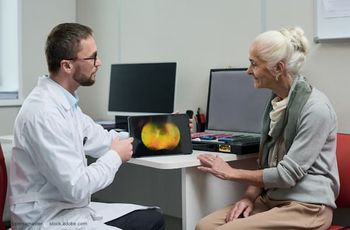
Hospital bombing in Ukraine includes ophthalmology department
Russian bombs on Wednesday struck a hospital in Mariupol, Ukraine, damaging several buildings, including an ophthalmology department. Elsewhere, physicians are participating in relief efforts.
On February 24, 2022, the Russian military crossed the border into neighboring Ukraine and has since waged an all-out assault on the county with civilian sites, including an ophthalmology clinic, becoming targets.
On Wednesday, CNN reported that the United Nations was investigating reports of the bombing of a hospital in Mariupol, Ukraine, noting that hospitals and health care facilities should never be targeted.
The New York Times reported that the buildings targeted included an ophthalmology department, maternity ward and a children’s clinic.
The newspaper noted that the number of casualties wasn’t immediately known, nor was it known if the hospital was fully operating at the time of the strike or had been evacuated to some degree.
The publication noted that the strike sprayed shrapnel and blew out the windows of several buildings at City Hospital No. 3. One crater in a courtyard between the buildings appeared to be more than 10 feet deep, according to the Times.
The strike was another apparent instance of Russia’s siege tactics hitting civilian infrastructure in Ukrainian cities, leading to what officials have called a humanitarian crisis in Mariupol and elsewhere in the country, which is about the size of Texas with a population of 44 million people.
Since the start of the invasion, the Russian military has cut residents off from power, water and heat in many parts of the country, including in Mariupol, a strategic port city.
Russian President Vladimir Putin, who claims the military action is a “peacekeeping mission,” has continued the assault on Ukraine, once a part of the former Soviet Union and now the second-largest country by area in Europe after Russia, which it borders to the east and northeast.
Ukrainian ophthalmologist part of relief initiative
The fighting has forced more than 2 million Ukrainians to leave their homes, streaming into neighboring countries, including Poland, Hungary and Romania. Meanwhile, civilian areas have become the targets of Russian bombs, according to myriad reports. The result is a humanitarian crisis in Ukraine and surrounding countries that are taking in refugees.
Iryna Surzhenko, MD, an ophthalmology registrar at Royal Victoria Eye and Ear Hospital in Dublin, Ireland is part of a group of 8 Ukrainian physicians working in the Irish healthcare system that has formed Medical Help Ukraine, an initiative to urgently deliver medical aid from Ireland to support physicians in their homeland impacted by the ongoing conflict in Ukraine.
According to Dublin People Media Group, the initiative is backed by the Ukrainian Embassy of Ireland and several other organizations, and its first delivery included an ambulance and two vans full of medical equipment that arrived in Ukraine on March 4.
According to the website, the Ukrainian Embassy in Ireland facilitated the transportation of the medical aid to Ukraine through the Polish border.
Medical Help Ukraine hopes to continue to maintain a pipeline of medical equipment, including ambulances, to Ukrainian facilities and war zones, according to the website.
Newsletter
Keep your retina practice on the forefront—subscribe for expert analysis and emerging trends in retinal disease management.

































